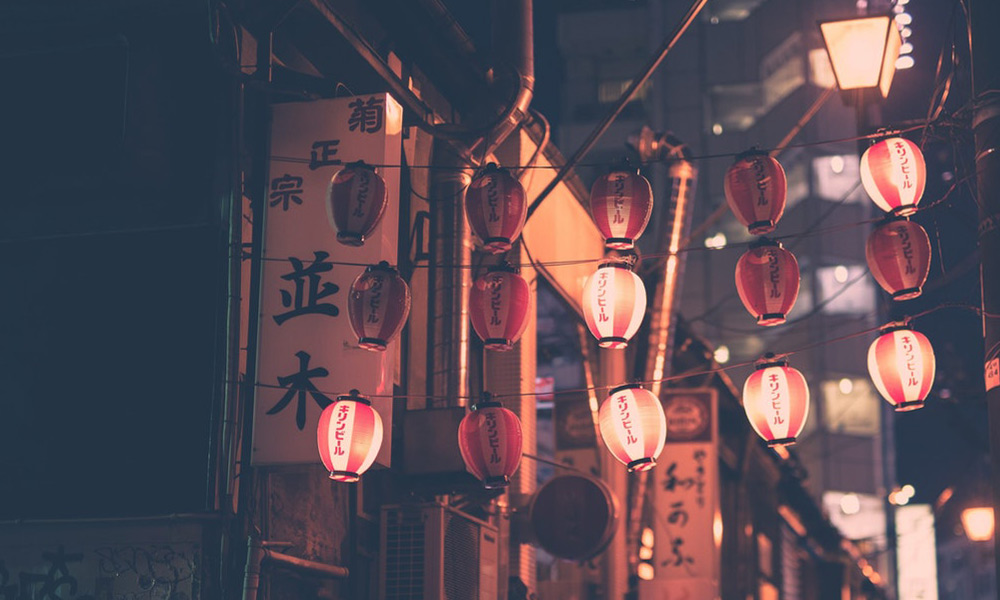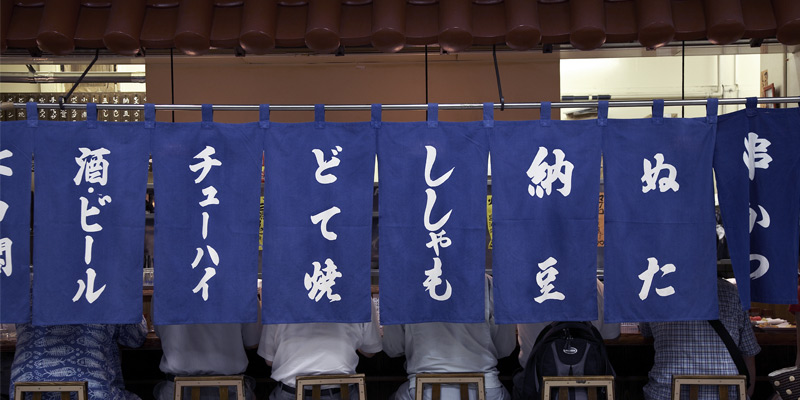
japanese drinking
Much like the UK, drinking is a popular pastime in Japan. Drinking with your friends, family and colleagues is an important social exercise, enjoyed by the majority. If you are planning a trip or simply want to know how to get properly smashed Japan-style, read my tips below:
What is the most popular (alcoholic) drink in Japan?
Sake is the traditional national alcoholic beverage of Japan. It is the typical drink for religious ceremonies, celebrations or simply starting a night out! This sweet rice wine is most commonly poured from a hot flask and sipped from small cups.
However, beer is now the most popular alcoholic beverage in Japan. Many youngsters have forgone sake as being ‘too traditional’ and opted for beer instead. But young, old, men, women, lowbrow or refined, Japanese beer is now loved by all. The most popular brands are Asahi, Sapporo, Kirin and Suntory.
What is the legal drinking age in Japan?
The legal drinking age in Japan is 20. However, if you are 18 and western you probably won’t be ID’d. But don’t blame me if you are, it’s the law.
Japanese drinking etiquette
The most important rule when drinking with friends or colleagues is not to pour your own drink. In restaurants or bars, your server will pour your drink for you.
If you are drinking as a group, you can take delight in topping up everyone else’s cup. Japanese people may defer a little in humbleness when you offer to pour theirs, but it’s ok to insist a little. Social convention dictates women should fill a man’s cup, and lower-status workers should top up their superiors’. Don’t worry too much if this goes against your principles, these rules will probably go out the window after a few rounds!
Drinking games are often part of the fun. Most rules are easy to understand but if you have been drinking a while and struggling you can play ‘jyan ken pon’ or as we know it ‘rock, paper, scissors’. You could try rock, paper, lizard, spock if you are brave enough to try to explain the rules. Traditionally Maiko (apprentice geisha) have a wonderful re-interpretation of this classic game, called ‘tora, tora, tora’ (tiger, tiger, tiger). Each player/ team sit either side of paper screen and on the count of three strike a either a samurai, old woman or tiger pose. Old woman beats samurai (?), samurai beats tiger and the tiger wins over the old woman.
Drinking with co-workers
Back when lifetime employment was more common, drinking with your colleagues and bosses was de rigueur. With strict lunch breaks and non-office conversations being frowned upon, there was not much time to build bonds. But after work drinks broke down the social conventions and allowed workers to talk freely. Building good relationships was important, as you may be spending the next 20, 30 or 40 years sharing an office with these people.
Nowadays, it’s easier to switch jobs and younger people are not drinking as much. Drinking with your co-workers is less of an expectation. However, it is still a good way to show strong company spirit and network. And when they party, they party hard! It’s not unusual to see salarymen passed out on the streets of Shinjuku or smell them reeking of alcohol on the subway in the morning.

Where to drink in Japan
So, you want to get your drink on and have a good time. Where do you go? Well, that depends on your personal taste and budget. Here a good few places to start:
Izakaya
Izakaya are like little pubs or bars that sell both alcohol and food. They can usually be identified by red paper lanterns posted outside the premises. Although most are informal and friendly, be sure to do your research before you enter. Izakaya can be small, personal and some do not welcome strangers.
Izakaya will sell most of your typical alcohol, such as beer, sake, wine and whisky. If you find a regular haunt you love, you may be able to request a bottle keep service. Order a whole bottle of you favourite Japanese whisky or tipple and you can finish over your next few visits to that establishment.
I love Izakaya food. Similar to tapas style eating, you can order lots of small dishes to sample slowly throughout the evening. Edamame, karrage (fried chicken) and kushiyaki (grilled meat or vegetable skewers) are some of my personal favourites.
Nomihodai – all you can drink
If your budget is tight, keep a look out for Nomihodai (飲み放題) deals. Often found in clubs, bars and restaurants, these all you can drink deals lets you drink to your hearts desire for a fixed priced during a set period.
This might sound too good to be true for UK drinkers. I doubt we as a society would ever be trusted not to take advantage of such a thing. With that in mind, be cool. Just because you can drink as much as you like, doesn’t mean you should. Japanese will often push westerners to see how much they can drink. Remember that you are drinking to have fun, it’s not a personal challenge!
Karaoke
If you are a terrible singer (like me), the word ‘karaoke’ will strike fear in your heart and an urge to run for the hills. But believe me when I say karaoke bars in Japan are different.
For one, you don’t have to sing in front of a room full of strangers. You will be allotted a private room for you or your group. There you can select your song and sing Bowie tunes loud and proud with only your friends to hear.
Karaoke bars are also excellent for drinking. You can order your drinks and snacks from a touch screen or phone in your room and a server will bring it all directly to you. Karaoke bars often have good deals (such as Nomihodai) and are a fun place to drink even if you are tone deaf!

Beer vending machines
Due to their consumer convenience culture, high labour costs and dense population, vending machines are a common sight in Japan. In Tokyo, you can pass them every few feet. You can find a vending machine for pretty much anything, and beer is one of them.
Until the past 10 -15 years, beer vending machines were everywhere. The government clamped down to prevent under-age drinking. But you can still find them if you know whereabouts to look. Beer vending machines on the street will require a scan of id or drivers’ licence. But you can also find beer vending machines in hotels that do require any id.
Want to know more about Japanese alcohol habits? Read my Japanese drinking blogs here.
